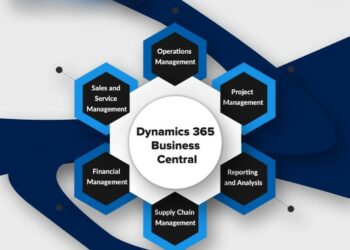Money is the first thing, but time is the greatest asset. In this episode, Jeff Rutkowski and JD Esajian discuss using your time wisely in real estate investments. Discipline is crucial in using time and money to your advantage. For instance, if you let lesser things occupy your time, they will directly affect your finances and the growth of your business. Therefore, you need to create time for essential matters. Jeff and JD also interview student guests to give you additional nuggets of wisdom. If you want more tips on succeeding in real estate, you wouldn’t want to miss this episode. Enjoy!
Time Is Your Greatest Asset: Learn How To Use It Wisely | Ep16 With Student Guests
What’s up?
I’m good. Good to see you as always. I’m great to be here. I’m pumped, as they say.
I am pumped as well. Let’s get into the word of the week. I have an exciting topic and a surprise. You’re going to love this one. Let’s kick it off as we always do with the word of the week. The word of the week is the investor mindset. One thing that you probably realized if you’ve been following this show is investors think differently than the average person. When you talk about mindset, mindset is a word that’s thrown around in all different ways in culture. There are some certain ways investors need to think.
I think of it as setting a thermostat. If you set it to 72 degrees, that creates the optimal environment for that temperature and for you to live or whatever you want to do. There is an optimal atmosphere and way of thinking that will give you a greater likelihood of success as an investor. Contrary to that, there is an adverse mindset that will hinder you from building this business. JD, that’s what we’re going to get in this episode.

Use Time Wisely: Create time for essential things.
It’s a perfect topic because it is directly related to someone’s success.
We’ve been getting into some heavy and technical stuff. How to get more of your offers accepted? How to sell your properties quicker? The Xs, Os and strategies. I would put the investor mindset in a category of intangibles.
They relate to everything we have been teaching about and will continue to talk about. If you’re not focusing on that, other areas are not improving at the rate you want them to.
One thing you taught me is there is no business development without personal development alongside it. A book that you and I greatly benefited from years ago was the book called Mindset. Carol Dweck was the author. That’s something I recommend if you’re thinking about getting started in the business. Pick up that book. She doesn’t do a good job in terms of saying what to do but she helps you identify.
She breaks mindset into two big categories, fixed and growth. I remember picking up that book and thinking, “I’m mostly a growth mindset of a person.” How do you interpret failure? Your competitive and non-competitive nature. Outside of that, we know how you view debt, using your own money and time. What I’ve learned from observing you and other high-level investors over the years is you think differently. My biggest growth over the years has been not from doing one particular deal or buying this particular property but it’s been a breakthrough and how I think.
You can apply that to anything you want to do and be successful if you’re focusing on the right mindset.
I purposely didn’t want to do any prep for this show. I wanted to be spontaneous, raw and off the cuff. Let’s break it down to when you think the investor mindset for you, what specific items come to mind?
The first thing that comes to mind for an investor mindset is focusing on time at a high level. What you value your time will directly relate to what you end up making on a deal or an income annually or quarterly. If you let other things occupy your time that isn’t the best use of that time then that’s going to directly affect your finances and the growth of your business. I do this well sometimes. To be frank some days I don’t do it. I load up my calendar with stuff thinking like, “I didn’t need to do half of that stuff.” Focusing on your time and understanding that time is the most valuable resource that we have. If you waste it, you don’t get it back.
We have a saying here, “Time is money.” Money is the first thing that the audience will think of but time is everything. It is the greatest asset. Once you spend it, it’s gone. That time is not coming back. What you described, we’ve all been there. We fill our calendar with stuff that wastes a ton of time and has us running into circles at times. We’re all guilty of it. What are some practical tips you use to use time properly?
The word time-blocking gets thrown around a lot. It’s hard to do but it’s important in this conversation of managing time correctly. What I’ve done and what I’ve seen other very successful people do is when you commit to doing something, you have to understand what value you’re getting out of that activity. Not just saying yes because someone else is asking. You want to be comfortable saying no to things in terms of doing a better job of managing your time. I’m not saying that we don’t commit to anything that doesn’t bring revenue in directly because there are things that we do beyond that.
It’s looking at your calendar or the time that you have, being very conscious and strict in what you do and what you don’t do. Time-blocking is part of that. It’s also important as a business owner and an entrepreneur, which go hand-in-hand, to create time to work in your business because that’s going to happen. If it’s not daily then it’s weekly to work on your business.
Improving your business, developing systems and networking, whatever you need to do to work on your business. Whether it’s a real estate investor or any other activity, if you’re always doing the day-to-day, managing people or whatever it may be and you’re not working on your business to improve it then you’re waiting for the organic improvement, which may or may not happen.
Hope is not a good strategy. One of our team members here, Noah, shared his calendar. I remember seeing it. From 6:00 AM until 9:00 AM, he had everything budgeted from playing with his kids to reading a book and exercising.
It’s color-coded. I remember seeing that same thing. Maybe it was the same day when he showed it. I thought that was effective in time-blocking. You made me look like a rookie when it comes to that activity. You learn from other people.
What would you say to the person who may be reading this or that you ran cross and say, “I want to get into real estate. I don’t have the time?”
I would say, “I agree that you said that. That mindset and thinking will always prevent you from doing whatever you want to do.” Whether you have 1 hour a day, 25 hours a week or full-time, you have the time. You need to maybe create more time over time but you have the time and that mindset will hold you back. It’s something of that nature. That thought process and making that statement is not indicative of you not having the time to invest in real estate. It’s more indicative of the way you look at a lot of things would be my guess. I’ve been there too.
Before we started studying real estate, successful people, getting into real estate and focusing on this, I would tell myself that too. “I don’t have time to read that book. I don’t have time to go to that class.” I told myself that I didn’t create the time where now I do the opposite and I create time like you do for things that are important. That statement of not having time changes too. I’ll make time for that if it’s important.
I find ultimately in life, we do what we want. We make time for what we want to do. I would ask the person, “How bad do you want this?” I always remember Than shared early on when you guys were starting CT Homes, I believe IKEA. He lived without a TV for two years because that would suck him in and waste time.
He wanted to maximize that. We love to play and watch sports but not having that TV there created hours and hours of time. There were other things that we did, although we didn’t have a lot of money then. With the money that we did have, we would pay people to help with things that weren’t the highest and best use of our time like going shopping. It sounds crazy. When we were younger, we weren’t established and didn’t have a lot of money but we would carve out money to have someone go shopping so that we could spend more time analyzing deals, studying or networking, those kinds of things. You’re right. You create time for the things that you want.
In addition to time management, time-blocking, whatever you want to call it, an important attribute of an investor mindset is how you view and interpret failure. You could view it one way that could limit you or another way. How do you look at failure in the journey of an entrepreneur?

Use Time Wisely: Debt as an entrepreneur is an accelerator.
I wasn’t always this way but I understand that anything we do whether it’s new or established, we’re going to have failures. We’re going to have things that don’t go right. We embrace it. Not to say that we’d like it, although in some instances we do like it because it shows us what we need to improve on and gives us an opportunity to get better. We embrace it and understand that it’s part of an activity. When it comes, we understand what created it, learn from it, improve it and hopefully that failure or hiccup never happens again.
A lot of our business in the early years have been built off of that like, “That didn’t work. How do we make it work? How do we adjust the template, the contract or a scope of work?” It’s embracing it. It’s so different than the way I used to look at failure growing up and think about it whether it was in a sports activity. It never feels good. That’s never what you say, “I’m going to go in. I can’t wait to fail.” If you look at it and understand that it’s opportunity knocking, you have a different outlook against it. You understand that you’re never going to run from it so you might embrace it.
We have a saying around here, “Either win or you learn.” One of my big takeaways going back to Carol Dweck’s book was how she described failure. She said, “A fixed mindset person when they fail, they interpret it as, ‘I’m a failure,’ where the growth mindset person said, ‘I learned one way. That doesn’t work. I’ll not use that one again.’” That’s important.
It’s a big distinction. What you described and how subtle that difference is, that is a secret to success right there.
[“source=fortunebuilders”]













